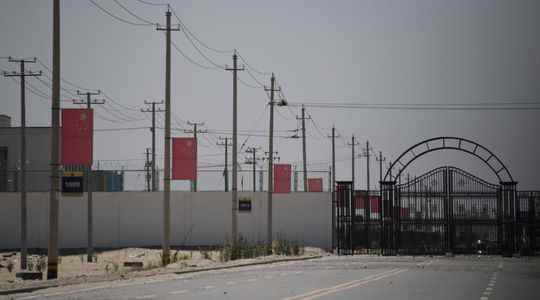These are new revelations that come as UN human rights chief Michelle Bachelet began an extremely anticipated visit to Xinjiang on Tuesday, May 24. A consortium of foreign media published this Tuesday morning a series of documents supposed to come from the hacking of computers of the police force of the province of Xinjiang (northwest). It is in this region populated by 26 million inhabitants, nearly half of whom are Uyghurs, that Beijing is accused of carrying out a fierce repression against Uyghur Muslims carried out in the name of anti-terrorism in order to “stabilize” this area, which would be threatened by the Muslim “separatists”.
The “Xinjiang Police Files” were delivered by a source to the German anthropologist Adrian Zenz. They come from a pirated batch of some 100,000 police documents and are notably composed of thousands of computer files dated from 2000 to 2018, 452 registers containing more than 20,000 names of arrested Uyghurs or even instructions, specifies The world, which is one of the 14 international media publishing these documents.
A large part of these files is devoted to the “educational transformation” of the Uyghurs, that is their mass confinement for the purpose of “re-education”, in the sense of the Chinese Communist Party (CCP). They describe, from the inside, the organization of new so-called “vocational training” camps as well as the deployment of police forces in the field.
Use of handcuffs, management of firearms…
Among these documents are thousands of photographs, including identity photographs, presented as having been taken in the “detention camps” of the region and showing the faces of many “detained persons”, including adolescents and the elderly. There are also many PowerPoint documents that detail the police tactics to be used: use of handcuffs, management of firearms, method of creating a gigantic file of detainees, etc.
As related The world, the Uyghurs locked up for re-education are those who have been sentenced for terrorism to sentences ranging from one year of imprisonment (for “downloading illegal content on smartphones”) to a maximum of ten years, for “incitement to terrorist activities”. . A “gathering likely to disturb the social order” is generally worth six years in prison according to the registers of the Vocational Training Center, sometimes much more.
Internal files of the Konasheher District Public Security Bureau “contain the personal information of 286,000 residents of the district, indicating that between 12.1% and 12.5% of ethnic minority adults in 2018 experience some form of internment, re-education, detention or prison”, establishes Adrian Zenz, who published his research in the Journal of the European Association for Chinese Studies. This considerable detention rate exceeds those of Stalinism and it “is 64 times higher than the national imprisonment rate of China”, notes Adrian Zenz.
Up to 1.8 million Uyghurs passed through the internment system
The German researcher estimates between 900,000 and 1.8 million the number of Uyghurs who passed through the CCP’s internment system out of the 11 million residing in the region. So far, Western studies have accused China of having interned at least a million Uyghurs and members of other Muslim minorities in re-education camps, even imposing “forced labor” and “forced sterilizations”. .
Asked, the Chinese Ministry of Foreign Affairs did not respond to questions sent by the media group of “Xinjiang Police Files” before publication. China regularly defends itself by denouncing the “lie of the century” and presenting the camps as “vocational training centers”, intended to combat religious extremism. Beijing also says not to impose any sterilization, but only to apply the policy of limiting births at work throughout the country, previously little practiced in the region.
Germany asks for “clarification” from China
After revelations about the repression targeting the Muslim minority of the Uyghurs, the head of German diplomacy Annalena Baerbock asked her Chinese counterpart on Tuesday for “clarifications”, indicated the Ministry of Foreign Affairs after an interview by videoconference between Annalena Baerbock and his Chinese counterpart Wang Yi.
Michelle Bachelet is the first UN human rights official to visit China since 2005, after years of negotiations with Beijing over the terms of her visit to Xinjiang. She will visit the regional capital Urumqi in particular. Inter-ethnic riots in 2009 killed nearly 200 people there, the vast majority of them Han (ethnic Chinese) beaten or stabbed by Uyghurs.
Michelle Bachelet will also go to Kashgar, in southern Xinjiang, where the Uyghur population is very large and where the security campaign is reputed to be particularly fierce. During a videoconference Monday with representatives of foreign embassies, she assured that she would visit detention centers and meet with human rights activists, according to diplomatic sources.
